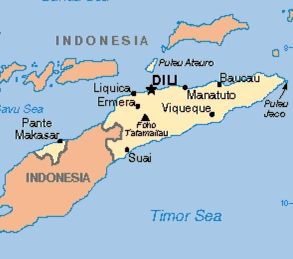On July 15, Indonesian and East Timorese leaders jointly accepted the findings of the Commission of Truth and Friendship, established in 2005, which blamed Indonesian security forces for committing "gross human rights violations" in a failed attempt to prevent the succession of East Timor from Indonesia in 1999. Indonesian President Susilo Bambang Yudhoyono, East Timor President Jose Ramos-Horta and East Timor Prime Minister Xanana Gusmao issued a joint statement that expressed "deep regret to all parties and victims, who directly or indirectly suffered physical and psychological wounds" due to the affair, in which hundreds of people died. At a time when the United States is experiencing such difficulty in Afghanistan and Iraq in managing a multinational military intervention, it is enlightening to review a clear instance when Washington undertook a very successful joint operation. In retrospect, the U.S.-Australian cooperative intervention in East Timor serves as a model of how the United States can work with regional powers to manage major security issues without dispatching a large American military contingent.
East Timor Reconciliation Recalls Lessons of Successful U.S.-Australia Intervention

